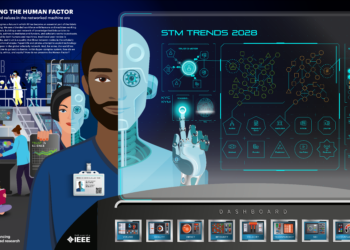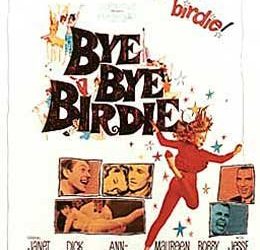
On Monday of this week, I posted a brief piece about a threatening letter sent to University of Colorado-Denver librarian Jeffrey Beall by the attorney for OMICS Publishing. Beall is the proprietor of Scholarly Open Access, a blog that tracks what Beall calls “potential, possible, or probable predatory scholarly open-access publishers,” in which company he includes OMICS. On his blog Beall explains how he arrives at his characterization of a publisher as “predatory,” saying that he begins by analyzing “the publisher’s content, practices, and websites according to ethical standards established by membership organizations” such as the Open Access Scholarly Publishers Association (whose standards can be seen here), the Committee on Publication Ethics (standards here) and the International Association of Scientific, Technical & Medical Publishers (standards here). He also applies criteria that have to do with editorial practices (e.g., are editorial boards populated by fictitious individuals or individuals with fictitious credentials?), business management (e.g., does the publisher hide the fact that it charges author fees?), and general business integrity (e.g., does the publisher make false claims about where and whether its journals are indexed?).
As noted in my previous posting, Beall’s list has generated some heated responses, particularly (though not exclusively) from publishers he categorizes as “predatory.” And as can be seen in the comments section following my posting, some of these responses may cross the boundary that separates “heated” from “criminal.”
For example, on 21 May, just as it seemed the commenter traffic on my posting might be winding down, a new comment was submitted by someone identifying him- or herself simply as “Mehdi.” It shared what were purported to be quotes from two writers, Gillian Dooley (an academic librarian in Australia) and Mark Robinson (said to be an editor for Stanford University’s alumni magazine); both quotes were highly critical of Beall and his list.
Tipped off by the strange and awkward diction of those quotes (of a type that one would not expect to see from a native English speaker), I did a quick Internet search and found that the same quotes had been posted in response to other online articles and blog postings about Beall and his list (for example here and here). I subsequently contacted both Dooley and Robinson to see whether they could confirm their authenticity. I learned that Robinson had not worked for Stanford Magazine since 2000, and he told me directly that the quote was fabricated. Dooley responded similarly, and subsequently added her own comment to the Kitchen’s comments page, saying that the quote had been invented and falsely attributed to her and that she “(does) not endorse the sentiments expressed.”
“Mehdi” also submitted a second comment, one which reproduces an email purportedly sent by Beall to Ashdin Publishing (which is included in his list) and offering to remove Ashdin from the list in return for US$5000. This email has been distributed widely, and its real origin is disputed; Beall denies that he had anything to do with it, and says that he is the victim of email “spoofing.” For a discussion of this issue with the person who seems to have been first to claim receipt of the email from Beall (and for some critical examination of the email’s provenance), see Richard Poynder’s January 2013 interview with Ashry Aly of Ashdin Publishing.
Harsh public criticisms of Beall have also been attributed to such noted OA advocates as Stevan Harnad and Peter Suber, both of whom deny they ever made the statements; those attributions are also referenced and discussed in conjunction with Poynder’s interview with Aly.
Just a few minutes after “Mehdi” posted a copy of the disputed email message to the Kitchen’s comments page, another comment was submitted by someone using the name “An lee Su.” This message characterized Beall as a “scammer” who “will write rubbish about the journals for a particular period of time and then email the publisher for negotiation.” For “more details” the commenter refers readers to a blog titled Jeffrey Beall Scam, which contains nothing except a few paragraphs reiterating the same message as the comment submitted to the Kitchen, along with a copy of the disputed email message.
Since these comments were posted, a number of very long comments have come in from interested parties in defense of some of the publishers listed on Beall’s blog, or taking exception to Beall’s blog in principle, or suggesting that the behavior he characterizes as “predatory” reflects only a lack of experience on the publishers’ part, or simply attacking Beall personally. A repeated theme on the part of these commenters (and others) is that Beall’s real target is open access itself — and that his behavior is itself “predatory.”
What will happen next? No one knows. It will be very interesting to see whether OMICS follows through on its threat of a lawsuit and criminal complaint. And as the conversation around Beall’s list and the issues it raises continues to become broader, more international, and more fraught, the possible implications and outcome scenarios will continue to multiply. You can be sure that we’ll continue monitoring these developments closely here in the Scholarly Kitchen.
Discussion
27 Thoughts on "Predators and Prey — The Plot Thickens"
Dear Rick,
I have a simple question.
Do you support Beall arguments to include International Journal of Medicine and Biomedical Research? I have argued there that Beall should show more patience before labeling a new small publisher as ‘predatory’. I also doubt that whether Beall contacted that publisher about their errors before labeling that small publisher. I argued that Giant publishers are getting more chance to prove than the small publishers. I do agree that “repeated offenders” should be punished (Link: http://scholarlykitchen.sspnet.org/2013/05/20/high-noon-a-publisher-threatens-to-lunch-a-criminal-case-against-librarian-critic/#comment-97084).
Akbar Khan,
India
Can you assure us that all of the people listed as “corresponding editors” have explicitly agreed, in writing, to be named in this capacity? Can you explain why, as an OA journal, it requires a transfer of copyright and does not permit any kind of reproduction, in whole or in part, without permission from the Editor? Can you tell us what kind of copyediting is provided and whether authors are given the chance to review the copyediting before page proofs are set?
Yes Sandy. I agree with you. If Beall is labeling a journal depending on the points you mentioned, I would have no point. Particularly even the first point (editor’s permission to publish his name) itself is sufficient to label a journal fraudulent. But I can not digest Beall’s funny arguments (particlauraly point 2 and 3).
Disclaimer: I have no competing interest to protect this particular journal. It is just an example case.
Note to Kent/blog owner: What happened to my other comments. I am not able to see them. Stopped in moderation. Can you give some reason of censoring at least by email for courtesy.
A Khan
India
I’m not going to be pulled into an argument about the validity of any of Beall’s specific judgements about publishers. This discussion is about the reactions to his list, and in particular to those who have reacted by inventing criticisms and fraudulently attributing them to others. Whether the criticisms themselves are valid or not is an interesting topic, but a separate one.
Dear Rick,
Do you want to judge the ‘reaction’ without discussing the ‘action’? I disagree.
When the reactions include threats of billion-dollar lawsuits, fabricated quotes, and a possible case of email spoofing, then yes — the reactions are worth discussing all on their own. (That’s not to say that Beall’s list itself isn’t also worthy of discussion, just that it’s important not to confuse the two topics.)
I don’t agree. Even a 100 billion dollar lawsuits can not be discussed separately, unless the background is clear.
Even a murderer can not be sentenced to life imprisonment, unless the motive of murder is clear.
Disclaimer: I don’t support OMICS.
Some of those comments remind me of the old New Yorker cartoon by Peter Steiner, which shows two dogs at a computer. Caption: “On the internet, nobody knows you’re a dog!”
Authenticity of source materials is important, and I commend you for checking. This is another good reason why researchers should be careful to retrieve the official copy of any journal article they are using.
As an Internet old timer, I remember the day when AOL customers first got access to the Internet. The level of civility on many of the dozens of mailing lists I was subscribed to plummeted (this is pre-www). I used to refer to that time as “the day the music died.”
Although I haven’t been able to identify such a clear date of demarcation for it, we have in the last few years experienced another such tectonic shift. It’s the point at which a critical mass of people with axes to grind began to see and use the Internet as an effective and safe way to disinform us and thereby attack and thereby injure their antagonists, real and imagined, human and conceptual.
I think Jeffrey Beall is not rigorous, and he thinks in the wrong way. For example, he lists some new journal titles (in preparation for the 1st issue) as predatory publishers. It is a jokes. Can you say a fetus is a cheat?
Azimi Azim
University of Colorado-Denver
Some of the predatory publishers described by Beall launch 100 to 300 new titles in their first year, many without Editors or under the administration of a handful of editorial administrators. Some of these new journals launched in waves or “fleets” don’t attract fee-paying authors for some time. These may or may not go against the grain of of expectations on the part of those more attuned to traditional journals which publish a minimum number of articles–at least one per issue?–per year, and grow over time. But such is the new landscape. Are these viable newborns? That is for potential authors, their academic administrators, and the user audience to determine. The role of the professional librarian in this arena might hopefully be more active in the analysis, assessment, and recommendation arena, above and beyond advocacy of the open access movement in general.
And when the published OMICS “office” is actually a Henderson, Nevada corporation registration company that has listed thousands of companies and has no idea who OMICS is and does not even provide the illusion of an office for any company it registers; and the fax number for article submission is in a different state and forwarded to who knows where it starts to seem like a dubious operation at best.
Dear Cohen,
Very nice argument! I am really surprised! Yes I do agree that due to poor economy, poor education, poor infrastructure, etc millions of children could not raised properly. So somebody can question: “Are these viable newborns?”. Therefore, kill them in foetus stage. Great!
Even from poorest family of the world greatest scientist, novelist, footballer can come out. Please give some chance to the newborns to prove. Many of them are trying to come out with many limitations. (Apart from some real criminals).
A Khan
India
My apologies. I did not intend to imply “infanticide” in the parallel, which was intended in a literary not literal sense. The outrage provoked is understandable. Apologies again.
OK Kent. Agreed and fair enough but some times long comments are required to complete the flow of thought. Now I have shortened my previous comment. It is here:
Dear Rick,
I see that you are very pleased with Beall’s criteria for inclusion in his list. May be your comfort comes from these facts that Beall’s criteria are based on widely respected rules of OASPA, COPE and STM.
Yes Beall also claims the same thing to make his criteria widely accepted (http://scholarlyoa.com/2012/08/04/criteria-for-determining-predatory-open-access-publishers/). He is deceptively trying to depict a picture that what Beall is doing, is indirectly supported by OASPA, COPE, etc. Nice try! I have never seen in any public post that Beall’s criteria are officially supported by OASPA, COPE etc. In fact I remember in Beall’s previous blog (most probably posterous/metadata…) Caroline Sutton (from OASPA) opposed him. (I may be wrong, as could not find the internet link).
If Beall is honest and properly follows citation rules he should have cited proper reference beside his each criterion. If Beall is honest I’ll invite Beall to show how his criteria are supported by OASPA, COPE, STMs’ criteria. Please put some reference.
Otherwise it is the same predatory practice as some of the unethical small OA publishers are falsely claiming about indexing in some reputed organization to make their journals legit.
A Khan
India
Mr. Khan,
I’m not sure where you get the idea that I’m “very pleased” by Beall’s criteria. I cited some of them, without comment, in order to give an idea of how he selects publishers for his list.
As for whether COPE, OASPA, and STM “support Beall’s criteria,” I’m not sure what you mean. The criteria in question are theirs; Beall simply uses them.
As for whether COPE, OASPA, and STM support (either directly or indirectly) “what Beall is doing,” I don’t think that Beall (or anyone else) has ever suggested that they do. If you’re aware of such claims, please refer us to them.
Dear Rick,
Beall’s first point of evaluation criteria is here:
“1. Complete an analysis of the publisher’s content, practices, and websites according to ethical standards established by membership organizations.
A. Open Access Scholarly Publishers Association (OASPA) Code of Conduct
B. Committee on Publication Ethics (COPE) Code of Conduct for Journal Publishers [PDF]
C. International Association of Scientific, Technical & Medical Publishers (STM) Code of Conduct”
link: http://scholarlyoa.com/2012/11/30/criteria-for-determining-predatory-open-access-publishers-2nd-edition/
In Beall’s total blog (as far as I read), I have never seen that he is using his point 1. His game starts from point 2 of his criteria, which are highly flawed. Then what is the motive behind the use of the name of OASPA, COPE, STM. No connection is established.
Similarly if a publisher uses the logo of ISO without any reason, Beall terms that publisher as predatory.
I hope similar analogy can be applied for Beall also.
Khan
Beall “uses the names” OASPA, COPE, and STM only by reference, in explaining the sources of the criteria he applies. Nowhere (that I can see) does he use them to imply that those organizations endorse his list.
It’s like me saying that we use Library of Congress subject headings in my library. That statement does not imply that the Library of Congress endorses my library, nor would anyone take it to mean that.
Hi,
I simply think some extremely stupid commenter are just diverting the discussion by posting some false and wrongly attributed comments (Example: http://scholarlykitchen.sspnet.org/2013/05/20/high-noon-a-publisher-threatens-to-lunch-a-criminal-case-against-librarian-critic/#comment-96985).
They are knowingly or unknowingly creating an atmosphere of Sympathy in favour of Beall. It is diluting the discussion on how Beall is preying on some small publishers to kill OA ultimately. These types of comments really proves that ‘there are some real predators’ in Beall’s list. They have done the same thing when Beall work came in Nature. It killed the total mood of the discussion and total attention was diverted and a wind of sympathy started to blow in favour of Beall.
Email spoofing case also favoured Beall regarding sympathy. I think Beall’s real friends are these particular ‘scammers’.
A Khan
India
It’s important not to confuse predatory behavior with the open access model. Most predatory journals only call themselves that because it sounds better than “author-pays”. Clearly, a journal that requires assignment of copyright and editorial permission for reuse isn’t open access.
I think this OMICS is way off the mark and those who swear by shoddy work want to support OMICS and trash the service that Mr. Beall offers. I am a tenured Assistant Professor located in India, who feels ashamed by the types who do not understand what blind peer review means and in the process they help to accelerate India’s decline in the world education map. In India, the University Grants’ Commission is grappling with mediocrity, plagiarism in PhD work and general apathy towards solid research. I am engaged in higher education here and I appreciate the work Mr. Beall does and think it is foolish to sue him. I had done a post on this sordid issue a few days back
Reblogged this on Lectio Divina, or daily seeings and commented:
God when will we own up to the fact that as a nation we have fallen into a slumber of academic apathy, plagiarism and self-glorification. Even the UGC is tired with India’s Higher Education.
This discussion can be broadened to predatory practices of scientific social networks. In addition to the frequent email I receive from unknown journals seeking manuscript submissions, I have recently received emails, allegedly from colleagues, asking me to join ResearchGate and Doximity. Although the emails initially appear to be from my colleagues, they are not truly spoofed as no-reply addresses are assigned to my colleagues. More important than the technical details, my colleagues deny their sending me invites. Remarkably, these companies have received substantial funding to support these emails (http://blogs.wsj.com/venturecapital/2012/02/22/founders-fund-joins-accel-benchmark-to-back-scientist-network-researchgate/).




